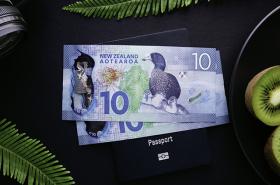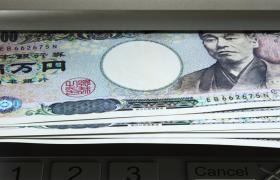Happy Friday to everyone except those of you that have panic-purchased toilet paper this week and caused supermarkets to put a cap on the number of rolls we can buy. My poor Grandma went to her local shops and was greeted with nothing but tumbleweed when she searched for some TP. Crazy times.
The root of this toilet paper crisis is none other than Coronavirus, which is impacting not only the value of the Kiwi dollar but global economies as a whole. With this in mind, today, one New Zealand dollar will buy you:
0.619 US dollars
67.1988 Japanese yen
0.5431 euros
0.4701 Great British pound
18.9186 Thai Baht
0.9325 Australian dollars
13,210.1 Vietnamese Dong
2 squares of toilet paper on the black market
Fluctuating exchange rates stressing you out? Stress less. Add Rate Move Guarantee to your purchase of foreign currency in-store. If the rate improves within 14 days, we will refund you the difference. Chances are the shopping centre toilets will have plenty of toilet paper too.
What impacted the Kiwi dollar this week?
A few key things:
- Coronavirus concerns continue to dampen market risk-appetite, thus putting downward pressure on the value of the NZD
- The US Federal Reserve cut US interest rates
- Markets wait for the Reserve Bank of New Zealand (RBNZ) to follow suit and cut NZ interest rates
- The USA election process continues to tick along, with several key contenders dropping out after ‘Super Tuesday’
The election has yet to have a significant effect on the value of the USD against the NZD; however, it is worth keeping an eye on if you plan on travelling to the USA in the next 12 months. At this stage, though, COVID-19 is the most prominent force dictating foreign currency movements.
To understand why the Kiwi economy and dollar is feeling the pressure of the virus so much, it’s essential to recognise where we sit in the grand economic scheme of things. Our economy is very closely linked to China as they are one of our biggest export partners, especially when it comes to dairy and tourism. Travel bans on Chinese citizens entering New Zealand have been in effect for some time now. This means there are fewer people in NZ spending money and helping the economy.
Secondly, the Kiwi dollar thrives in ‘risk-on’ markets. In other words, when investors are concerned about the level of risk in global markets, they will stop purchasing the NZD and instead flock to ‘safe-haven’ currencies like the Japanese yen. This is evident right now, as the value of the JPY has increased slightly alongside the demand.
Finally, increased (and some would argue slightly over the top) media coverage of the virus has led to panic in New Zealand. Panic means people will spend less, preferring to save their money and weather out the storm. Unless they’re buying toilet paper apparently. Who knew.
When it comes to the value of the Kiwi dollar, there is good news and bad news. The bad news is that it is arguably quite low at the moment, especially against the USD. However, the good news is that, since mid February, it has not fluctuated significantly, staying between 0.611 and 0.6232 USD, showing the NZD is keeping relatively stable amidst the craziness. Whether this pattern will remain is unknown, all we can do is cross our fingers and hope for the best.
What does this mean for Kiwi travellers?
While the virus has undoubtedly put a spanner in the works, it doesn’t mean you have to cancel your travel plans and lock yourself in a toilet paper fortified dungeon.
Instead, look to travel to countries in the South Pacific, UK or the USA where the virus has yet to reach or is less pronounced. Chances are tourist hot spots are a lot less crowded than usual, so it’s the perfect time to explore yourself.
Alternatively, consider a holiday across the ditch to Australia, particularly to areas in southern NSW, Victoria and South Australia that were hit by the bushfires. That way you can have an epic holiday and know your tourist dollars are helping business’ down there rebuild after the fires.
When it comes to foreign currency, there really is no way of knowing what markets and the value of the NZD will do (if you do know, can you please let us know?). What we do know is the following:
- You can sign up to rate alerts, and we’ll let you know when the NZD hits a high against your preferred currency
- It’s worth adding Rate Move Guarantee to your purchase in store
- You can lock in a great exchange rate with your Cash Passport
For travel advice, we recommend speaking to your local travel agent and keeping an eye on Safe Travel. For anything currency related, you’re always welcome to swing by any of our stores and chat to our travel money experts.
Finally, the country isn’t going to run out of toilet paper. Please stop filling your trolleys so that my poor Grandma can get her hands on a roll or two.
This blog is provided for information only and does not take into consideration your objectives, financial situation or needs. You should consider whether the information and suggestions contained in any blog entry are appropriate for you, having regard to your own objectives, financial situation and needs. While we take reasonable care in providing the blog, we give no warranties or representations that it is complete or accurate, or is appropriate for you. We are not liable for any loss caused, whether due to negligence or otherwise, arising from the use of, or reliance on, the information and/or suggestions contained in this blog. All rates are quoted from the Travel Money NZ website and are valid as of March 6th 2020. Terms and conditions apply to Rate Move Guarantee.












